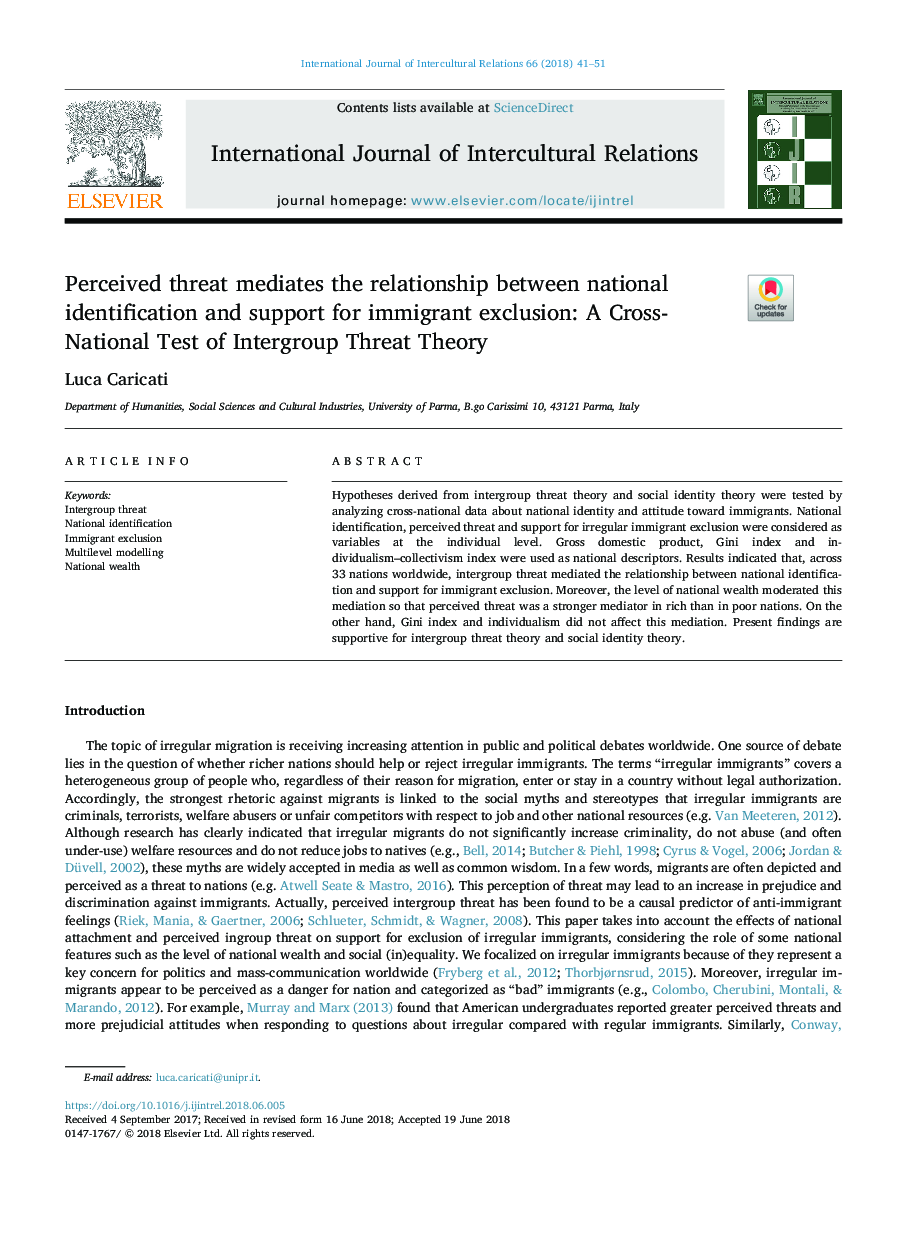| Article ID | Journal | Published Year | Pages | File Type |
|---|---|---|---|---|
| 7323588 | International Journal of Intercultural Relations | 2018 | 11 Pages |
Abstract
Hypotheses derived from intergroup threat theory and social identity theory were tested by analyzing cross-national data about national identity and attitude toward immigrants. National identification, perceived threat and support for irregular immigrant exclusion were considered as variables at the individual level. Gross domestic product, Gini index and individualism-collectivism index were used as national descriptors. Results indicated that, across 33 nations worldwide, intergroup threat mediated the relationship between national identification and support for immigrant exclusion. Moreover, the level of national wealth moderated this mediation so that perceived threat was a stronger mediator in rich than in poor nations. On the other hand, Gini index and individualism did not affect this mediation. Present findings are supportive for intergroup threat theory and social identity theory.
Related Topics
Social Sciences and Humanities
Business, Management and Accounting
Business and International Management
Authors
Luca Caricati,
